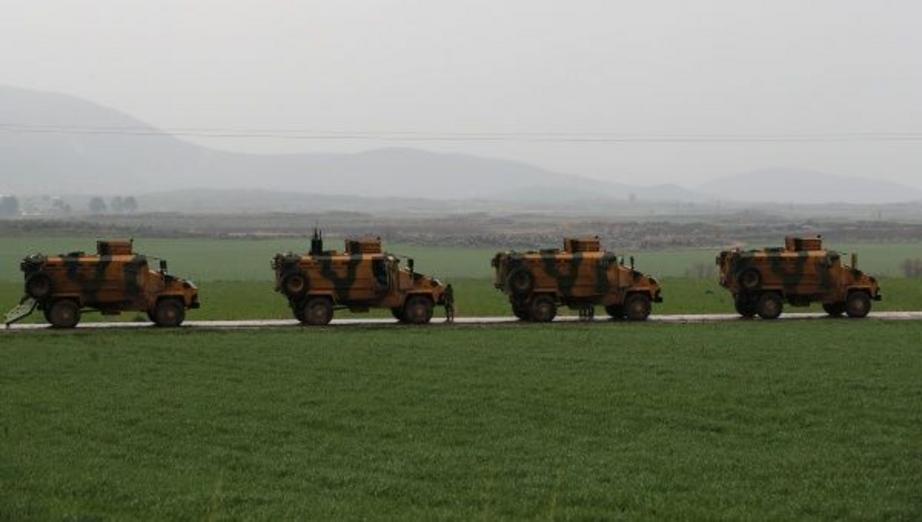Syrian Kurds ask Assad for aid against Turkish aggression
Afrin's de facto autonomous government asked Assad to help them protect Syrian national sovereignty against Turkish attacks.
Afrin's self-administration issued today a statement asking for the official Syrian army to intervene in the territory against Turkish aggression, which has been bombing the area and already deployed ground troops.
Today marks the sixth day of the “Olive Branch” Turkish military operation aimed at the province of Afrin, a region held by the mostly-Kurdish Syrian Democratic Forces (SDF) in northern Syria. The SDF is composed mainly of Kurdish militias such as the People's Protection Units (YPG) and the Women's Protection Units (YPJ), considered by Turkish authorities as the Syrian branch of the outlawed insurgent group the Kurdistan Workers' Party (PKK).
The release, signed by the Democratic Self-Administration of the Afrin province, reaffirms Afrin is an integral part of Syria and calls for the official Syrian state government to carry out its sovereign duties, protect its borders from attacks by the “Turkish occupier” and deploy the Syrian armed forces to secure the borders of the Afrin region with Turkey.
This represents a policy shift. The SDF and the Assad administration have had common enemies such as the Islamic State and have agreed on truces, but they had until now exercised a great level of autonomy.
The Syrian government has denounced Turkish aggression as a violation of their sovereignty, and have warned their airforce is now fully operational and ready to defend it. They champion the idea of a united Syria with no room for an autonomous government within their borders, but no response has yet been seen.
The Kurdish militias had until now been backed by the US with military intelligence, air-strike assistance, weapons and training in their fight against the Islamic State (IS), proving to be very effective and playing a key-role in their dismantling, even taking back the IS self-declared capital Raqqa. However, the US decided to step back in the conflict between the SDF and Turkey, saying that they no longer hold an interest in Afrin.
The Turkish Army is currently working alongside the Free Syrian Army and its offspring the Syrian National Army, both backed by Turkey against the Syrian official government.
In another press release published today, the SDF asked Turkish forces and their allies to surrender to SDF's forces “before you reach a stage where you regret this in vain.” They also declare the SDF are not hostile to anyone and that their forces “fight against dangers faced by the people, the country and the neighborhoods,” and that they “hope for the reunification of Syria after the war.”
Turkish President Recep Tayyip Erdoğan has stated before that the YPG and the SDF, which he calls terrorists, should surrender or face destruction. He has also blamed the US for its support of “terrorist organizations.” Both the US and Turkey are NATO members, and tensions between them have been growing lately because of this particular row and also because Fethullah Gülen, a cleric the Turkish state considered the mastermind behind the 2016 coup attempt, is currently living in the US and faces no deportation.
Trump and Erdoğan recently held a phone conversation, but what was said is not clear since both governments have issued different readouts of it. According to the White House, Trump declared his concerns about the escalating violence in Afrin and the increasing anti-US rhetoric by him and other Turkish high-ranking officials urging them to de-escalate their aggression. But Turkish authorities have said the presidents just “exchanged views,” denying Trump had warned about the escalation of violence during the operation or expressed his concerns about a possible clash between both countries' ground troops.
Turkey's Foreign Affairs' Minister Mevlüt Çavuşoğlu has said Damascus knows the Kurdish militias want to split from Syria, and that they have no intention of attacking Assad's forces.
This also puts Russia in a difficult position, since they have permitted the Turkish military operation, at the same time as supporting Assad's government, which has publicly demanded a halt to the operation.
The SDF also includes militias from different ethnic groups, such as Syriac and Arabs, and is currently building a pluralist political project partially modeled after Abdullah Öcallan's, the founder of the PKK.

